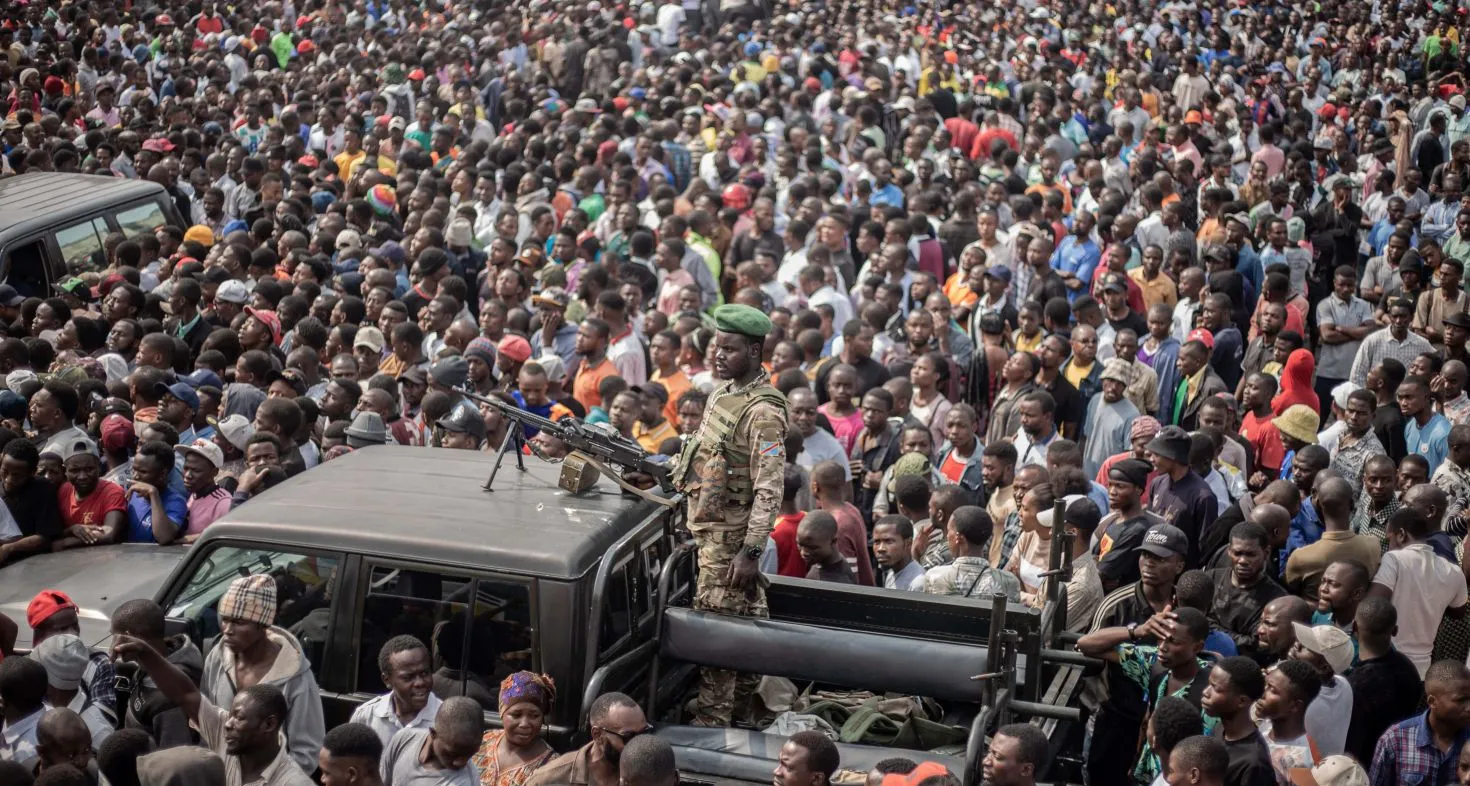
Journalists in Goma carefully resume work after violent M23 takeover
A few days after rebellion group M23 violently took over the city of Goma in the Democratic Republic of the Congo, the dust has finally settled enough for people to go out and assess the terrible impact it had. We speak with Jacques Vagheni from our partner CORACON, a collective of independent radio and TV stations. “Community radio stations had to suspend all work. There was no internet, no electricity. No one had access to information.”
When M23 entered Goma, a week of intense fighting followed. A prison was set on fire, people were shot and killed and houses destroyed. An estimated 900 people were killed, their bodies left in the streets. For most of this time, there was no electricity or internet, and journalists and radio stations were not able to work, causing a black out in information. When Jacques and his team were finally able to go to their office, they fortunately found it still intact. However, other media and individual journalists suffered losses (by the central government or M23) like stolen vehicles and loss of equipment such as voice recorders, laptops and phones.
Psychological impact
The overtake of Goma by M23 has left a deep impact on the work of CORACON and its community radio stations. “We had to suspend all work. No radio programming was possible and we had no means to actually get to the office. There was no internet, no electricity. No one had access to information.”
"But the fear of the unknown that is yet to come, might be the biggest impact of all. "
The violence heavily impacted the wellbeing of the team. “We have all been affected directly or indirectly somehow. Not only employees of Coracon, but all journalists. The wife of one of our colleagues was shot in the stomach, luckily she seems to be stable now. But the fear of the unknown that is yet to come, might be the biggest impact of all. Not knowing what will happen next. At this point we do not know if there will be repercussions from the central government in Kinshasa for instance.”
Carefully get back on air
Since electricity and internet were back up on Friday 31 January, the CORACON radio stations carefully reassembled and got back to work. The situation is incredibly fragile and uncertain, and everyone proceeds with caution under the new power holders in terms of what they can broadcast. “ Even when topics are more limited, there is still a lot of information that we can provide that the population needs access to.”
Another focus of CORACON is to take an active role to act against the spread of disinformation and to promote independent news and reliable information.
Information to conquer daily challenges
There are currently huge numbers of displaced people around Goma who need to have critical information in order to safely return home or to get the support they need to survive. “We broadcast information on what roads are safe to take, which travel documents are required by M23, whether or not traveling to Rwanda is possible at the moment, where there is access to clean water. These are all vital topics for people at the moment. For now there is plenty of content to be tackled, without diving into the new political situation.”
"We are uncertain if this new power will accept it if we report on different voices or angles."
He continues: “That being said, making radio means asking questions. And we are uncertain if this new power will accept it if we report on different voices or angles, such as from the central government for instance. These might not include opinions that M23 agree with.”
Urgent needs
Right now, CORACON’s first need is support for the safety of their staff. Only then they can continue their work. Jacques Vagheni: “And not just physical safety, but also psychological and juridical safety.”
Secondly, institutional reinforcement is needed to keep media viable, and sustain community radio, especially in situations of conflict where it is more important than ever. “Even before this new takeover the landscape for media was financially difficult. Media outlets heavily rely on advertising income. With the fighting that has been going on in the past week, many businesses in Goma have been destroyed. Therefore the advertising income has been slashed for media and community radio specifically.”
Jacques Vagheni concludes: “But most of all we wish for a pacifistic resolution now in Goma. Dialogue and peaceful negotiations are needed. We need peace. La paix est moins cher que la guerre’ (peace is cheaper than war).”
